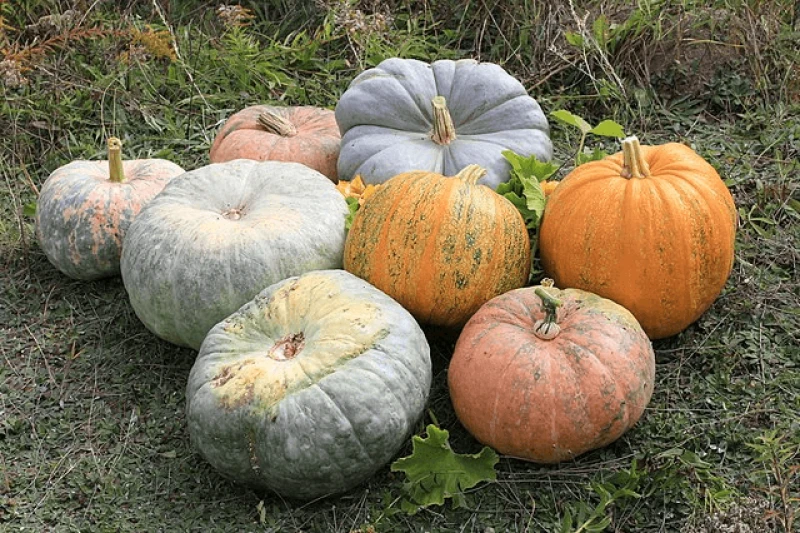Pumpkins against poverty: How this drought-tolerant fruit might prove to be sustainable boon in developing world
Pumpkins against poverty: How this drought-tolerant fruit might prove to be sustainable boon in developing world


In the West, pumpkins may be the main ingredient in a traditional holiday pie, but their true potential lies in their nutritional and medicinal benefits. Rich in various essential nutrients and relatively easy to grow, this hardy, drought-tolerant crop is underrated. Pumpkins offer great promise as farmers battle with water scarcity and increasingly harsh climates, local communities struggle with economic insecurity, and the the world’s population is increasingly undernourished.
In Bangladesh, mini deserts – known as sand bars – are formed due to climate change-caused flooding… However, these river-eroded, silt-covered lands are now being harnessed to grow pumpkins to help tackle food insecurity, unemployment, and malnourishment.
What started in 2005 a project called “Pumpkins against Poverty“, formed by the non-profit Practical Action, has now turned into a profitable enterprise called Pumpkin Plus. “We are working with over 1,000 agri-entrepreneurs, exporting pumpkins to Qatar, Malaysia, Singapore, and other countries, and building the capacity of the local communities to diversify to commercial agriculture,” says Nazmul Islam Chowdhury.
…
Pumpkins are an ideal plant for water insecure regions due to their tolerance of drought. Given their ability to withstand less water and salinity, as well as the fact that Bangladesh farmers can make a good profit compared to other produce, they are the preferred crop to be grown in the sand bars.
This is an excerpt. Read the original post here

 | Videos | More... |

Video: Nuclear energy will destroy us? Global warming is an existential threat? Chemicals are massacring bees? Donate to the Green Industrial Complex!
 | Bees & Pollinators | More... |

GLP podcast: Science journalism is a mess. Here’s how to fix it

Mosquito massacre: Can we safely tackle malaria with a CRISPR gene drive?

Are we facing an ‘Insect Apocalypse’ caused by ‘intensive, industrial’ farming and agricultural chemicals? The media say yes; Science says ‘no’
 | Infographics | More... |

Infographic: Global regulatory and health research agencies on whether glyphosate causes cancer
 | GMO FAQs | More... |

Why is there controversy over GMO foods but not GMO drugs?

How are GMOs labeled around the world?

How does genetic engineering differ from conventional breeding?
 | GLP Profiles | More... |

Alex Jones: Right-wing conspiracy theorist stokes fear of GMOs, pesticides to sell ‘health supplements’




 Viewpoint — Fact checking MAHA mythmakers: How wellness influencers and RFK, Jr. undermine American science and health
Viewpoint — Fact checking MAHA mythmakers: How wellness influencers and RFK, Jr. undermine American science and health Viewpoint: Video — Big Solar is gobbling up productive agricultural land and hurting farmers yet providing little energy or sustainabilty gains
Viewpoint: Video — Big Solar is gobbling up productive agricultural land and hurting farmers yet providing little energy or sustainabilty gains Fighting deforestation with CO2: Biotechnology breakthrough creates sustainable palm oil alternative for cosmetics
Fighting deforestation with CO2: Biotechnology breakthrough creates sustainable palm oil alternative for cosmetics Trust issues: What happens when therapists use ChatGPT?
Trust issues: What happens when therapists use ChatGPT? 30-year-old tomato line shows genetic resistance to devastating virus
30-year-old tomato line shows genetic resistance to devastating virus California, Washington, Oregon forge immunization alliance to safeguard vaccine access against federal undermining
California, Washington, Oregon forge immunization alliance to safeguard vaccine access against federal undermining The free-range chicken dilemma: Better for birds, but with substantial costs
The free-range chicken dilemma: Better for birds, but with substantial costs ‘You have to treat the brain first’: Rethinking chronic pain with Sanjay Gupta
‘You have to treat the brain first’: Rethinking chronic pain with Sanjay Gupta
